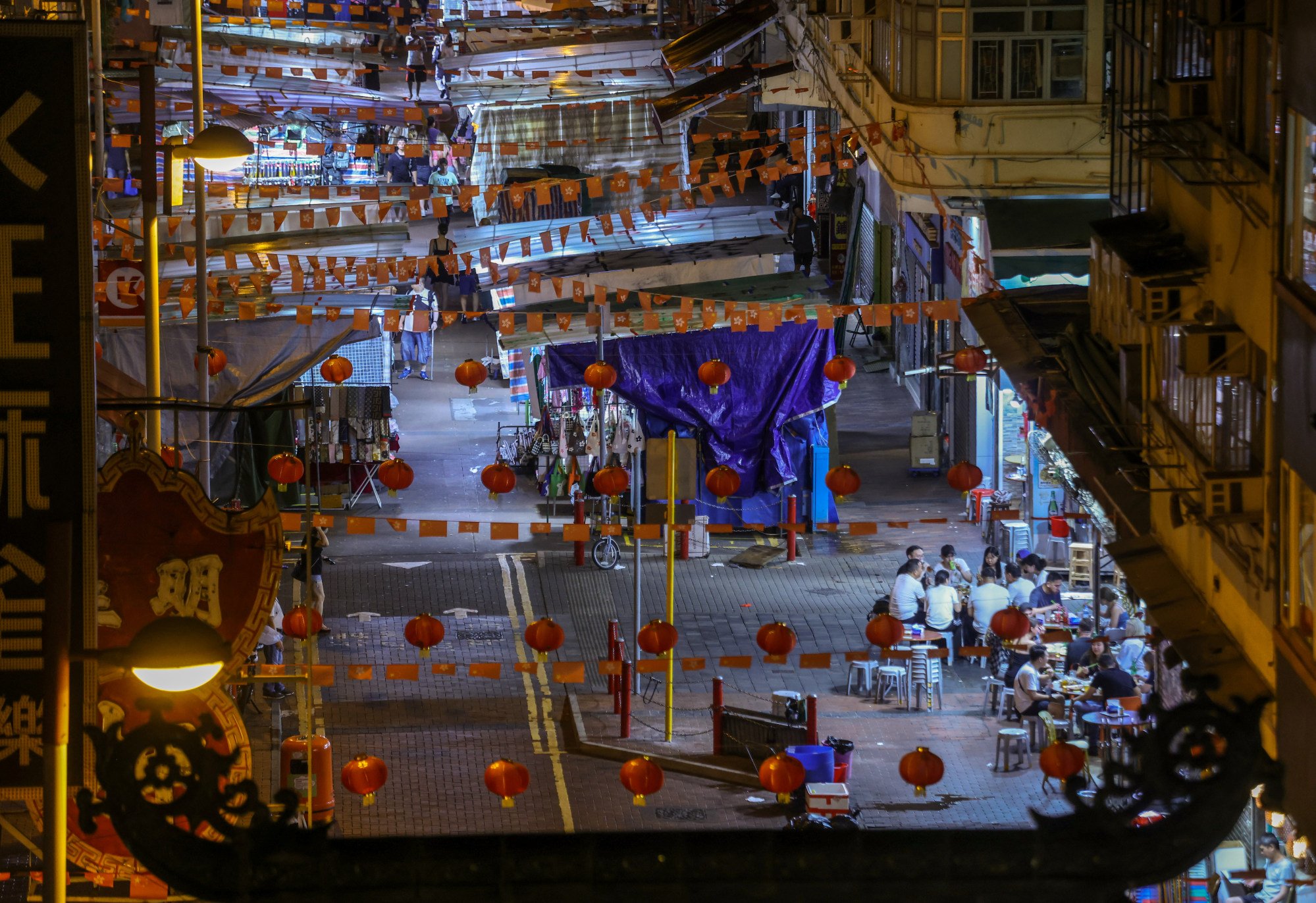
‘Night Vibes Hong Kong’ may attract residents to stay out longer, but will they open purses and boost economy?
- Official argues it is hard to ‘quantify’ results, and social impact alone is well worth the effort
- Critics say events rolled out by the government are misaligned with goals
A string of events under the “Night Vibes Hong Kong” campaign to revive the evening economy may encourage residents to come out after dark but uncertainty remains on whether the drive will boost spending, according to lawmakers and business leaders.
Speaking on the effectiveness of the campaign, Deputy Financial Secretary Michael Wong Wai-lun on Friday said authorities did not find it best to “quantify” how the drive would boost the economy.
“We think it may not be appropriate to quantify, but instead focus on the social impact,” he told a radio programme. “If the streets can become lively again and everyone can be happier … even not consuming is equally welcome.”

Some lawmakers earlier said the government’s proposed activities were mismatched with goals of increasing consumption, casting doubt on its effectiveness.
Critics also questioned if the drive would entice consumers to stay in the city amid a post-pandemic shopping trend of Hongkongers flocking to nearby mainland Chinese cities such as Shenzhen after the border reopened.
Wong said despite competition with nearby cities, it was “not a zero-sum game” where only one side could gain, adding Hong Kong could still attract shoppers through good services and high-quality products.
“Hongkongers’ wallets aren’t empty, but how they feel will affect how willing they are to spend,” he said. “If they are happy in Hong Kong, with good services and high-quality products, they may also spend locally.
“Don’t forget many friends on the mainland can also come and experience a better Hong Kong. It is a two-way thing.”
Legislator Michael Tien Puk-sun said the measures suggested under the scheme did not align with the desired results.
“By launching so many activities for people to go onto the streets and just walk around, so what ?” he asked. “If I were operating a store, I would not be open for business, as these people who are coming out do not intend to spend money.”
Tien suggested 50 per cent discounts for all forms of public transport after 10pm, including the MTR, pointing out that an offer already suggested by the rail giant was not alluring enough, with conditions that were hard for residents to remember.
The veteran lawmaker also proposed the use of night consumption vouchers, to be obtained from shopping centres and used after a certain time. He noted however that malls should at least shoulder half of such costs.
Legislator Doreen Kong Yuk-foon said the government could only do so much in terms of event variety, but she expressed hope authorities would put more work into such programmes to ensure they drew enough people.
Citing the Wine and Dine Festival, she said more discounts and offers could be provided, allowing visitors to sample food items for free.
Kong cautioned, however, that officials should still take into account the current economic situation and habits of the general public, with most people lacking the time and money to constantly go out in the evening.

Some business leaders lauded the campaign and said it gave Hongkongers a reason to spend the night out.
“The government has done the right thing,” tycoon and chairman of Lan Kwai Fong Group Allan Zeman insisted. “Things have been quiet. It has only been eight months since borders opened up again, and I really, really believe people will come out the more events we have.
“People come out when there are events. When there is nothing, they stay home.”
Catering sector lawmaker Tommy Cheung Yu-yan also welcomed the move, pointing out dinner spending tended to be at least 30 to 40 per cent higher compared with lunch.
Professor Terence Chong Tai-leung, executive director of the Lau Chor Tak Institute of Global Economics and Finance at Chinese University, said there was no direct relationship between having a vibrant night economy and growth of gross domestic product.
He pointed to cities such as Phuket and Bangkok, which boasted vibrant night economies that did not guarantee strong economic growth akin to that of Shenzhen.
“It is very hard to use the night economy to stimulate an economy as big as Hong Kong. We mainly make money from people outside the city through finance,” he said.
“By relying on people doing things and selling things to each other at night, it may not guarantee very large contributions to the economy, there could be some small contributions if everyone comes out to spend a little more money.”
Chong pointed out that the main effect of the campaign would likely be related to social harmony, with residents having more opportunities to meet friends outside.

